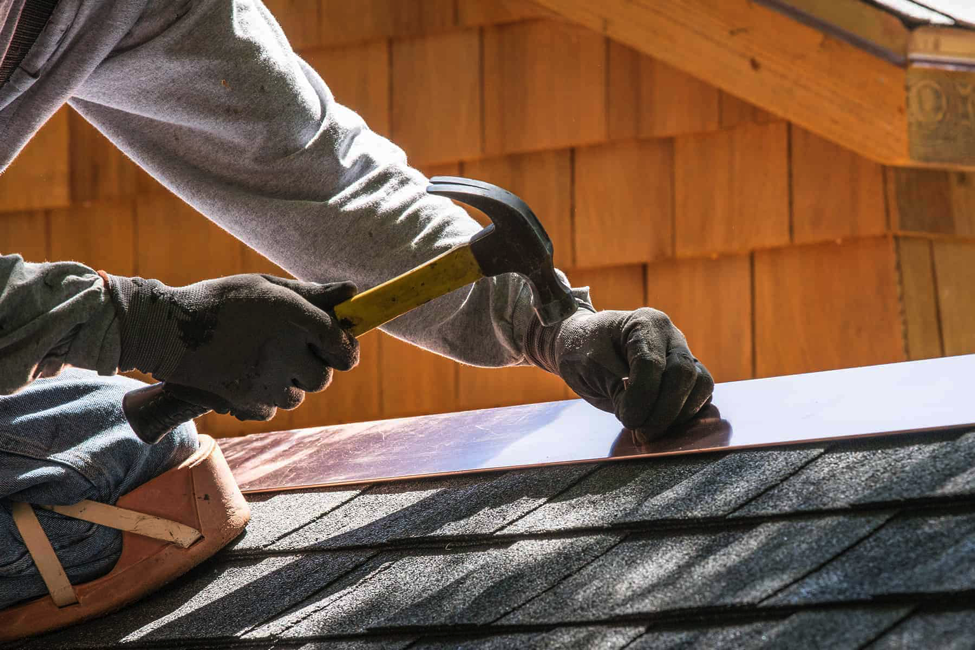Budgeting is essential when it comes to home improvement projects!

Properly assessing your roofing needs and creating a well-planned budget are crucial steps toward a successful project. So, let’s explore various roofing financing options to help you make an informed decision and ensure your roofing project stays within your financial means.
Assessing Your Roofing Needs
Before delving into financing options, it’s essential to assess the condition of your roof. Consult a professional that can inspect your roof and provide an evaluation. They will determine if your roof needs repair or replacement, or if it can benefit from other improvements. If you want a brand new roof on a budget, one of the best options is to consult a metal roofing company that will help you choose a durable and low-maintenace solution.
You can accurately estimate the costs involved if you have a clear understanding of the scope of your roofing project.
Creating a Roofing Budget
Once you’ve assessed your roofing needs, it’s time to create a comprehensive budget. Start by estimating material and labor costs based on the recommendations provided by roofing professionals. Consider extra costs like permits, inspections, and any unforeseen contingencies that may arise during the project. By allocating funds for unexpected expenses, you can avoid financial strain and ensure a smoother project execution.

Exploring Roofing Financing Options
With your budget in place, it’s time to explore various roofing financing options available. Here are some popular choices:
Cash Payment
Using your savings or liquidating investments to pay for your roofing project upfront is the most straightforward option. It eliminates the need for loans and interest payments. However, it may require substantial financial resources that not everyone has readily available.
Home Equity Loans and Lines of Credit
You can access the equity in your home through a home equity loan or a home equity line of credit. These options allow you to borrow against the value of your home and usually come with low interest rates.
Personal Loans
These are unsecured loans that can be used for different purposes, including home improvement projects. They often come with fixed interest rates and repayment terms. Personal loans provide flexibility, allowing you to borrow a specific amount of money and repay it over a predetermined period.

Credit Cards
Credit cards can be convenient for financing smaller roofing projects. They provide flexibility, and if you have a low-interest or promotional period, you may benefit from deferred interest. However, be wary of high interest rates and have a repayment plan in place.
Contractor Financing
Some roofing companies offer their own financing options. Before considering this option, carefully review the terms and conditions, including interest rates and repayment plans. Be sure to compare it with other financing options to ensure it’s the most favorable choice for you.
Government-Sponsored Programs and Incentives
Research if there are any government programs or incentives available in your area to help homeowners fund their roofing projects. These programs often offer low-interest loans or grants, especially for energy-efficient roofing materials.
Understanding the Pros and Cons of Each Option
Each financing option has its own set of advantages and disadvantages. Consider the following factors when evaluating the options:
- Interest rates and repayment terms: Compare the interest rates and determine if the repayment terms align with your financial situation and goals.
- Credit requirements and eligibility criteria: Understand the credit score requirements and eligibility criteria for each financing option.
- Impact on credit score and financial stability: Evaluate how each option may affect your credit score and overall financial stability.
- Timeframe for approval and disbursement: Consider the urgency of your roofing project and choose an option that provides timely approval and disbursement.

Researching Lenders and Loan Providers
Before making a decision, thoroughly research lenders and loan providers offering the financing options you’re considering. Compare interest rates, fees, and customer reviews. Seek recommendations from friends and family who have had positive experiences with financing their home improvement projects. Additionally, consult with your roofing company for guidance and potential lender recommendations.
Applying for Financing
Once you’ve identified the best financing option for your roofing project, gather the necessary documents and information required by the lender. Submit your loan applications and any required paperwork promptly. Stay proactive throughout the application process, monitor the progress, and respond promptly to any inquiries from the lender.
Making an Informed Decision
Evaluate all available financing options based on your personal financial situation. Consider your budget, the costs involved, and the terms and conditions of each option. Weigh the benefits and drawbacks, ensuring that your chosen financing option aligns with your needs, capabilities, and long-term financial goals.

Managing Your Roofing Project Budget
Once your financing is in place, it’s important to manage your roofing project budget effectively. Track expenses meticulously and make adjustments as necessary. Communicate openly with your roofing contractors about costs, ensuring that you stay within the allocated budget. Look for cost-saving strategies that won’t compromise the quality of the materials or workmanship.
In Closing
Budgeting for a roofing project is crucial for its successful completion. By assessing your roofing needs, creating a comprehensive budget, and exploring the available financing options, you can make an informed decision that suits your financial situation. With careful planning, you can achieve your home improvement goals without breaking the bank. Remember, consulting with a reliable roofing company and researching lenders will help you navigate the financing landscape and ensure a smooth and successful roofing project.




